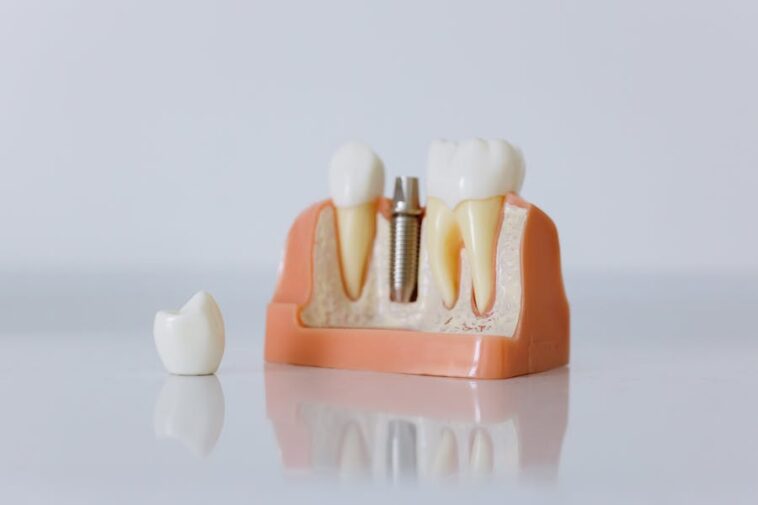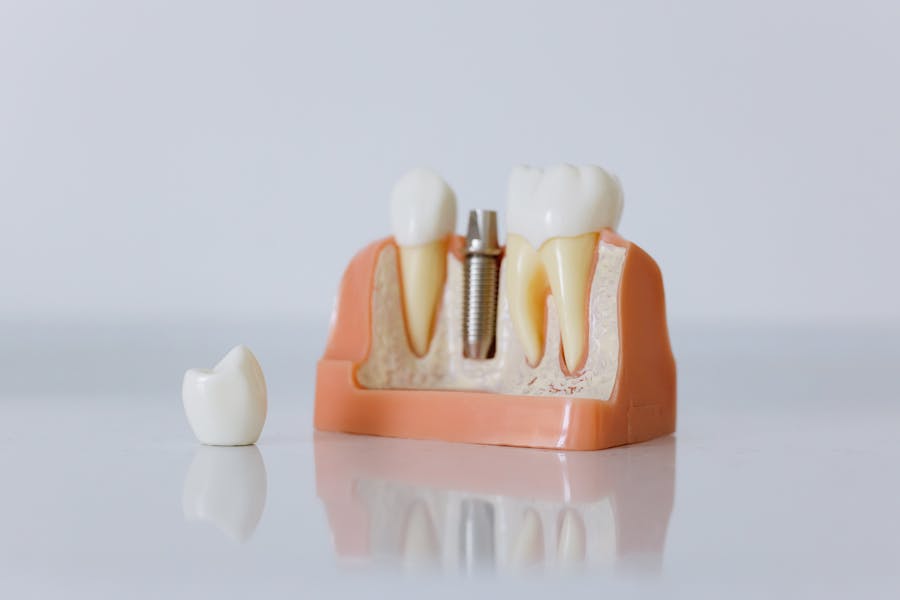Dental implants represent a significant advancement in dental restoration, offering a durable and aesthetically pleasing solution for replacing missing teeth. However, not everyone is an ideal candidate for this procedure. The success of dental implants depends on several critical factors, ranging from bone density and oral health status to lifestyle choices and overall health conditions.
Adequate Bone Density
A key requirement for dental implant success is sufficient bone density in the jaw. The implant post needs a robust foundation for osseointegration, a process where the implant material fuses with the bone. Patients with reduced bone density, often due to osteoporosis or the long-term absence of natural teeth, may require bone grafting to strengthen the potential implant site.
Good Oral Health
Candidates must exhibit good oral health, particularly in the gums, which support the implant structure. Conditions such as periodontal disease can undermine the stability of implants, leading to failure. Effective treatment of gum disease is essential before proceeding with implant surgery. Discover the benefits of dental implants in Stillwater, MN, and learn more about the process – check this page for details.

Non-Smokers or Willingness to Quit
Smoking has been shown to impede healing and negatively affect the success rate of dental implants due to its impact on blood flow and gum health. Patients considering dental implants are strongly advised to quit smoking to enhance the procedure’s success and their overall oral health.
General Health Considerations
Overall health plays a significant role in determining suitability for dental implants. Chronic illnesses, such as uncontrolled diabetes or autoimmune diseases, may slow healing and increase the risk of implant failure. A thorough medical history and discussion of any health issues are crucial steps in the evaluation process.
Commitment to Oral Hygiene and Regular Dental Check-ups
A successful implant candidate must be committed to maintaining stringent oral hygiene practices and scheduling regular dental check-ups. The longevity of dental implants significantly depends on proper care, including routine brushing, flossing, and professional cleanings.
Age Requirements
While there is no strict upper age limit for dental implants, the treatment is not recommended for individuals whose jawbones have not fully developed. Therefore, dental implants are typically not placed in young patients until bone growth is complete.
Identifying the right candidates for dental implants requires a comprehensive assessment to ensure that each patient can achieve the best possible outcomes. By adhering to these criteria, dental professionals can provide treatments that offer lasting benefits, enhancing patients’ quality of life through improved dental health and functionality.
Preparing for Dental Implant Surgery
Successful dental implant surgery begins with thorough preparation. Candidates identified as suitable for implants undergo comprehensive dental evaluations, including X-rays and 3D imaging, to assess bone quality and plan the implant placement. Dentists may also discuss lifestyle modifications, such as quitting smoking and managing chronic health conditions, to improve surgical outcomes and post-operative healing.
The Dental Implant Procedure Explained
Dental implant surgery is typically performed in stages, with each phase allowing time for healing before proceeding to the next:
- Removal of Damaged Tooth: If necessary, any damaged or remaining tooth structure is removed.
- Bone Grafting (if required): For patients with insufficient bone density, bone grafting is done to provide a solid foundation for the implant. This may add several months to the overall timeline to allow for healing.
- Implant Placement: The dental implant, a titanium post, is surgically inserted into the jawbone. After placement, a period of osseointegration begins, usually lasting several months, during which the implant fuses with the bone.
- Abutment Attachment: Once osseointegration is complete, an abutment is attached to the implant post. This piece serves as the connection point for the final crown.
- Artificial Tooth Placement: The final step involves attaching the artificial tooth or crown to the abutment, completing the restoration.
Post-Operative Care and Recovery
After each stage of the implant procedure, patients may experience typical post-surgical effects, such as swelling, bruising, minor bleeding, and discomfort. Pain can usually be managed with over-the-counter pain relievers, and antibiotics may be prescribed to prevent infection. It’s crucial for patients to follow their dentist’s care instructions closely, including dietary restrictions and oral hygiene practices, to support healing and the success of the implant.
Long-term Care and Maintenance
Once the dental implant process is complete, ongoing care is essential to maintain the health and functionality of the implant. Regular dental check-ups, proper oral hygiene, and avoiding damaging habits are key to the long-term success of dental implants. With proper care, dental implants can last a lifetime, providing a functional and aesthetic replacement for lost teeth.
Conclusion: A Commitment to Success
Choosing dental implants is a significant decision that requires a commitment to thorough preparation, understanding the procedural steps, and diligent post-operative care. For those who are suitable candidates and willing to invest in the process, dental implants offer a durable and natural-looking solution for missing teeth, significantly improving oral health and quality of life.
Key Takeaways: Navigating the Journey to Dental Implants
- Adequate Bone Density: Essential for the success of dental implants, providing the necessary foundation for implant stability.
- Good Oral and Overall Health: Candidates need healthy gums free from periodontal disease and should manage any chronic health conditions to improve surgical outcomes.
- Commitment to Oral Hygiene: Rigorous oral hygiene and regular dental check-ups are crucial for the healing and long-term success of dental implants.
- Staged Procedure: The dental implant process involves multiple stages, including the surgical placement of the implant, osseointegration period, and attachment of the crown.
- Post-operative Care: Following dentist instructions for post-surgery care is vital for minimizing risks and ensuring the implant’s longevity.
- Lifelong Solution: With proper care and maintenance, dental implants can last a lifetime, significantly enhancing oral health and the quality of life for those who are suitable candidates.





